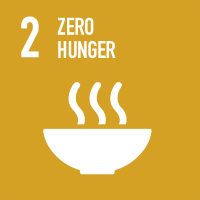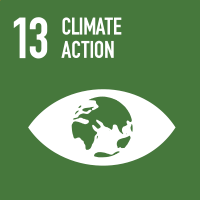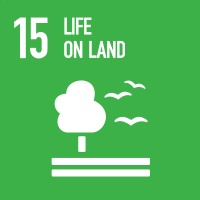Studying at the University of Verona
Here you can find information on the organisational aspects of the Programme, lecture timetables, learning activities and useful contact details for your time at the University, from enrolment to graduation.
Study Plan
This information is intended exclusively for students already enrolled in this course.If you are a new student interested in enrolling, you can find information about the course of study on the course page:
Laurea in Biotecnologie - Enrollment from 2025/2026The Study Plan includes all modules, teaching and learning activities that each student will need to undertake during their time at the University.
Please select your Study Plan based on your enrollment year.
1° Year
| Modules | Credits | TAF | SSD |
|---|
2° Year activated in the A.Y. 2024/2025
| Modules | Credits | TAF | SSD |
|---|
1 module between the following3° Year It will be activated in the A.Y. 2025/2026
| Modules | Credits | TAF | SSD |
|---|
1 module among the following1 module among the following1 module among the following| Modules | Credits | TAF | SSD |
|---|
| Modules | Credits | TAF | SSD |
|---|
1 module between the following| Modules | Credits | TAF | SSD |
|---|
1 module among the following1 module among the following1 module among the followingLegend | Type of training activity (TTA)
TAF (Type of Educational Activity) All courses and activities are classified into different types of educational activities, indicated by a letter.
Plant physiology (2024/2025)
Teaching code
4S02035
Teacher
Coordinator
Credits
6
Language
Italian
Scientific Disciplinary Sector (SSD)
BIO/04 - PLANT PHYSIOLOGY
Period
Semester 2 dal Mar 3, 2025 al Jun 13, 2025.
Courses Single
Authorized with reserve
Learning objectives
The objective of the course is the acquisition of the theoretical fundamentals of plant physiology. After attending the course, the students will be able to understand the principal plant metabolic processes and the physiological and molecular mechanisms regulating growth and development, and response to the environment.
Prerequisites and basic notions
Knowledge of the basics of plant anatomy and histology. These topics will be briefly introduced at the beginning of the course.
Program
The topics covered during the lessons are:
• Water transport in plants: chemical properties of water, mechanisms of water transport.
• Water balance of plants: movement of water in the soil, water absorption by roots, water transport through the xylem, transpiration and stomatal movements, control of stomatal opening. Water stress: physiological responses to drought.
• Mineral nutrition: the essential mineral nutrients, transport of mineral ions across membranes, membrane transport proteins, effects of mineral deficiencies.
• Photosynthesis: the light reactions: general concepts , the photosynthetic apparatus, light absorption, electron transport and ATP synthesis. The Calvin-Benson cycle and its regulation. Photorespiration. C4 and CAM metabolisms. Starch and sucrose synthesis and hydrolysis.
• Translocation in the phloem: the sink-source concept, phloem loading and unloading, allocation and partitioning of phosynthates.
• Respiration: general concepts and unique features of respiratory metabolism in plants
• Assimilation of nitrogen, sulphur and phosphate. Biological nitrogen fixation.
• Plant growth and development: signal transduction in plants, cell division and cell expansion, embryogenesis, meristematic tissues, plant life cycles.
• Photoresponses: phytochrome, phytochrome-induced responses and molecular mechanisms. Blu-light responses and photoreceptors.
• Phytohormones: biosynthesis, physiological effects and molecular modes of action of auxin, cytokinin, gibberellins, ethylene, abscisic acid , brassinosteroids, polyamines, jasmonic acid.
• Examples of genetic engineering applications to crop improvement.
Bibliography
Didactic methods
Teaching is based on lectures sometimes combined with the viewing and discussion of video material in English.
In case of attendance restrictions due to COVID, supporting teaching materials (lecture recording) will be provided.
Learning assessment procedures
The examination consists of an oral interview lasting approximately 30 minutes, which will focus on the topics covered in the lecture and can be found in the recommended text; the examination format will be the same for attending and non-attending students.
Evaluation criteria
The exam will ascertain:
Students’ knowledge on the topics of the lectures;
The language accuracy used to communicate the knowledge acquired;
The ability to link the knowledge acquired to potential biotechnological applications.
Criteria for the composition of the final grade
Evaluation of the interview outcome.
Exam language
Italiano



